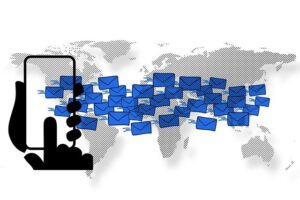
If you know about the most common spammer tricks, protecting yourself from online fraud becomes easier.
Around 20 years ago, online fraud became a consistent issue, always ready to trap any unwary users browsing the world wide web. Antivirus software can definitely protect you from most spammer tricks. Still, sometimes even the strictest and most protected email spam filters might let a potentially dangerous email slip right into your inbox. Whether it’s your personal email or a work email, the possibilities of being hacked from spam are endless. However, if you know about the most common spammer tricks, protecting yourself from online fraud becomes easier. Read on to learn more!
Financial Phishing Attempts
Email phishing that tries to steal your bank account or credit card information remains a very common online attempt for online fraud. It is one of the dangerous ones, too, because if you fall for it, you might grant spammers access to more than just your data, you could grant them access to all of your money. Spammers and hackers will send you fake messages from your bank to inform you of any suspicious activity or failed transactions that make you require your identity. Spammers might gather data about you from your social media accounts or other public sources online before sending one of these emails. Remmeber to keep a close eye out for them, as they can pass as legitimately emails to the untrained eyes. If you need help figuring out what is a phishing email and what isn’t, give En-Net Services a call!
False or Fake Notifications
Fake notifications have always been spammer’s favorite types of strategies, and they are everywhere today – in your emails, social media, on your phone, and even on popular e-stores. Fake or false notifications typically direct you into a fake login page to steal your credentials or require you to provide other sensitive personal information.
Fake Websites
Fake websites are essential identical copies of popular websites or service providers. Spammers and cybercriminals might use emails, social media, and other online channels, including forums, groups, and apps, to offer you special, limited-time offers or other perks. In return, they require you to create a fake account to enter your credit card information. Milder variants of this scam try only to steal your personal information for more spam-related marketing purposes to sell it to more mass spammers.
Government Fraud Emails
Government fraud attempts, by contrast, use scare tactics in their emails. They use fake, official-sounding emails from the CIA, FBI, and IRS to threaten you into handing over your personal data. Keep a close eye out for this, as no government agencies use emails for this.
En-Net Services Can Help Today
Experience a superior method of getting the public sector technology solutions you need through forming a partnership with En-Net Services. Our seasoned team members are familiar with the distinct purchasing and procurement cycles of state and local governments, as well as Federal, K-12 education, and higher education entities. En-Net is a certified Maryland Small Business Reserve with contract vehicles and sub-contracting partnerships to meet all contracting requirements.
